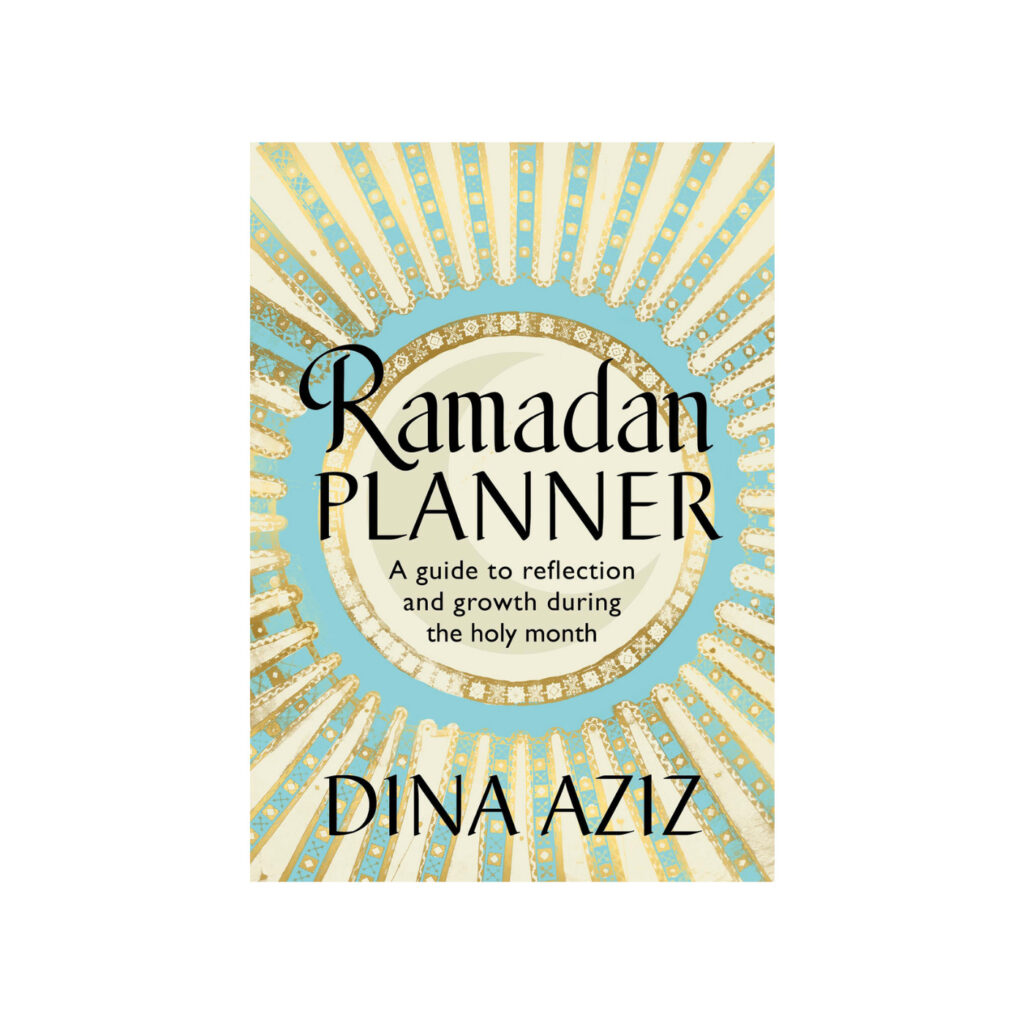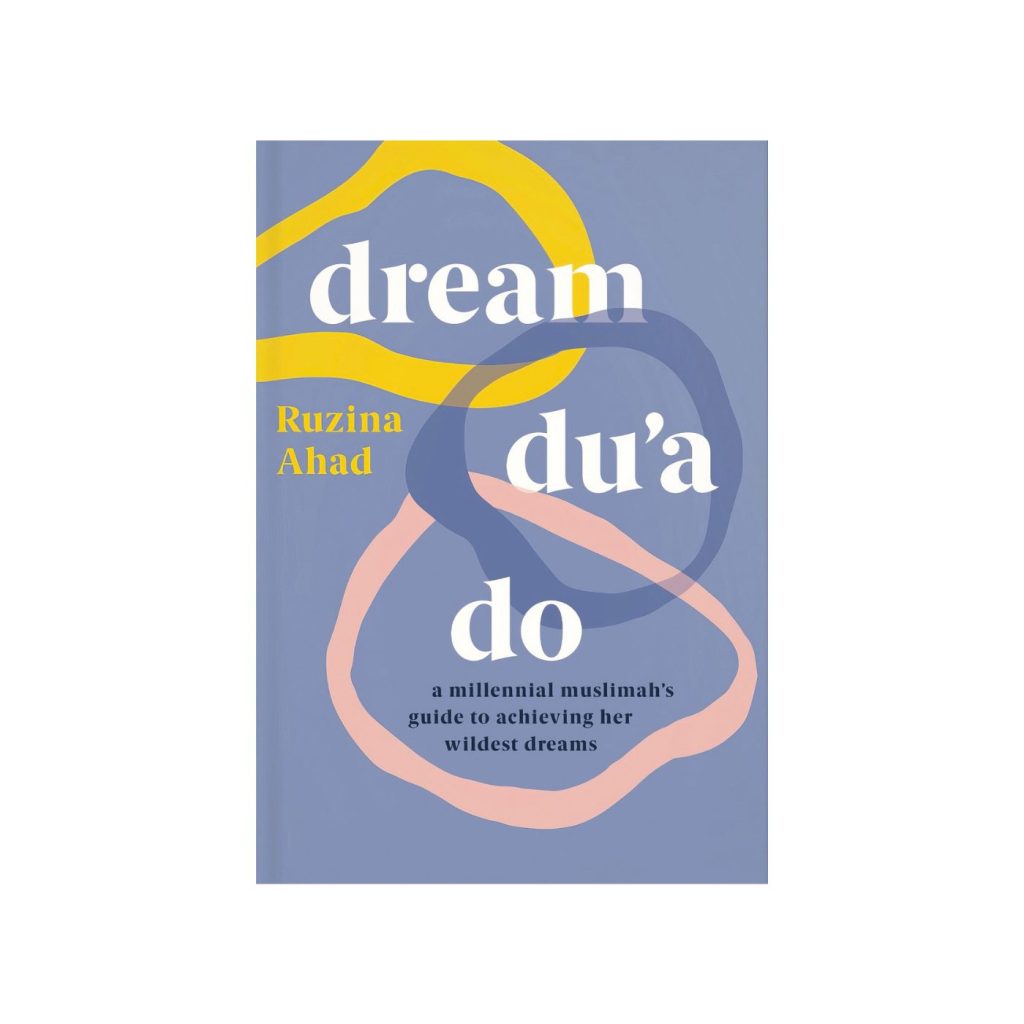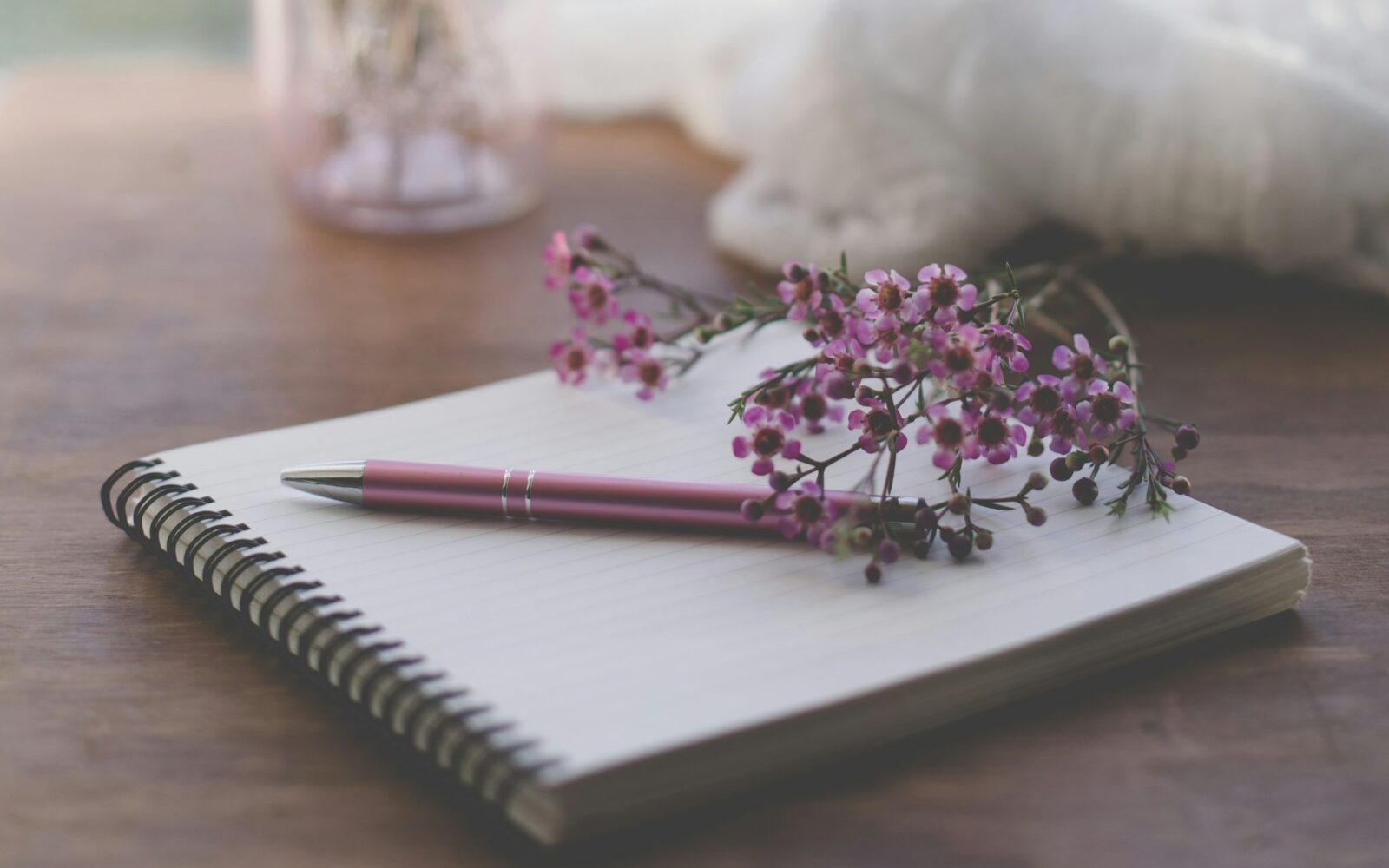MOJEH talks to the Muslim women penning guided Ramadan journals, modernising a centuries-old tradition with a practice that promotes mindfulness
Between distractions on social media and the routine interferences of our daily lives, it can be difficult to declutter our minds while observing the rituals of Ramadan: a challenge that UK-based influencer Dina Aziz is all too familiar with. Dina rose to fame when ‘modesty’ became a buzzword in mainstream fashion, and clothing brands started paying increasing heed to hijabi content creators on social media. But her latest venture has nothing to do with posting her daily looks — instead, Dina has turned to writing books.

Ramadan Planner by Dina Aziz
This month marks the release of Dina’s first: Ramadan Planner: A Guide to Reflection and growth during the Holy Month. In 2019, she had created an earlier version of the planner to help support a friend who had recently converted to Islam. She then made a second edition in 2020, filled with more tips, tutorials, prompt pages and mental health content and posted it on social media. Within 24 hours it had been downloaded more than a million times, and the popularity of her planner ultimately captured the attention of Penguin Random House, who messaged her on social media regarding a partnership. “The process was amazing,” Dina tells MOJEH. “Penguin was really interested in how interactive and unique the planner was and through collaborative discussions and negotiations, we brought the Ramadan Planner to life.” The resulting Ramadan-themed planner is a compilation of prayers, supplications and tips and from religious scholars. Readers are encouraged to write in it, set personal goals, track their progress and actively reflect on their spiritual journey — a process Dina says helps facilitate deeper spiritual growth alongside fasting throughout the month. “As someone who values organisation and structure, using a planner helps me stay focused and disciplined during Ramadan,” she says.
Dina’s journey on social media began by chronicling modest, fashion-forward outfits, and although she may be beginning a new chapter, she is committed to using her platform for positive impact. “While my journey as a Muslim influencer continues to evolve, my overarching goal remains the same: to serve and uplift others in accordance with my values and beliefs,” she explains.

Dream, Du’a, Do by Ruzina Ahad
While Dina’s Ramadan Planner may be the newest to land in the publishing market, it isn’t the first. Alongside the thriving self-care industry and increasing popularity of gratitude journals, the past few years have seen the release of a handful of Islamic journalling books too — such as Dubai-based author Ruzina Ahad’s Dream, Du’a, Do: A Millennial Muslimah’s Guide to Achieving Your Wildest Dreams.
Ramadan, however, is a particularly pertinent time for setting goals in spirituality and religious rituals. “It’s that one time of year when we pause. Life changes. We eat differently, pray differently and worship differently,” says author Aliyah Umm Raiyaan, whose new book The Power of Du’a was published in February. This time last year she released Ramadan Reflections: A Guided Journal, which focuses on connecting with the present by healing from the past. “There is this sense of starting anew post-Ramadan. And in order to ‘wear new skins’, we must shed the ‘old’ that are no longer useful for the person that we wish to become,” she explains.
From a mental health perspective, the Holy Month is an optimal time to embark on a journalling journey, believes Dubai-based mental and emotional health coach Roh Hafeez. “The spiritual rituals are conducive to being calm and peaceful, and it is at those moments that we are able to see clearer and reflect better,” she explains. “Journalling is a great pathway to meeting ourselves authentically and intimately. When we write, we allow for our thoughts, feelings and insights to mature on paper. We capture our wins and losses, and everything that contributed to both.”

The Power of Du’a by Aliyah Umm Raiyaan
While Ramadan journals may promote the tangible tracking of progress, Aliyah cautions against falling into a frame of mind that’s just focused on results. She admits that her early Ramadan seasons as a new Muslim revolved around on the amount of Qur’an she read, or the amount of charity she gave. “Now, my focus is not on how much I do, but why I do what I do, and who I’m doing it for,” she explains. “My levels of productivity are not measured by quantity but quality — spiritual quality.”
At the root of this writing practice, after all, should be the desire to purify and nurture one’s soul, rather than to solely fill pages. Ramadan offers a break from the fast-paced lifestyles that often chip away at our spirituality, and taking time to journal while engaging in soulful practices can help us become more mindful about our purpose here on Earth. “We do a lot, and there are thousands of thoughts running through our minds,” says Aliyah. “Journalling helps us to slow down.”
- Words by Hafsa Lodi





